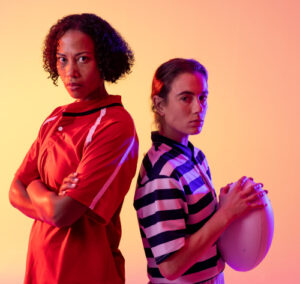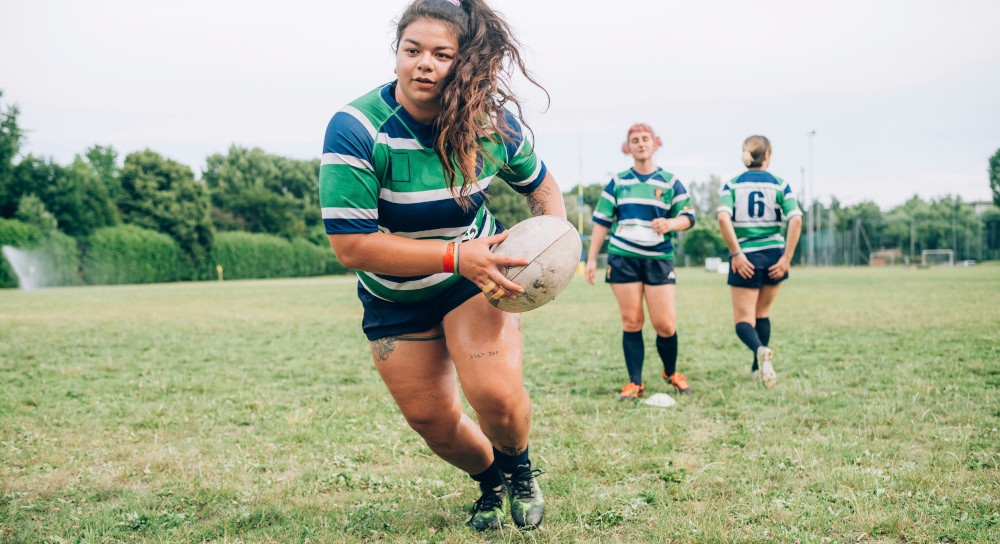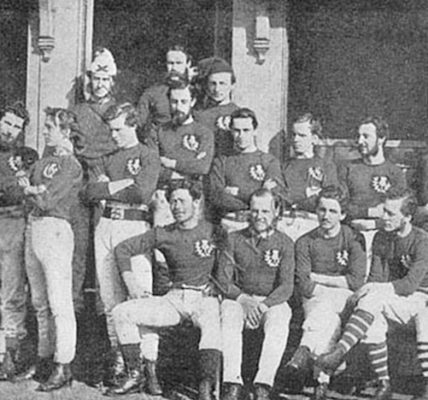In the vibrant province of KwaZulu-Natal, rugby is stitched into the cultural fabric, with generations of players and supporters filling fields and stands in towns from Durban to Pietermaritzburg. For decades, however, the spectacle of rugby has been overwhelmingly male, with women’s participation constrained by cultural perceptions, lack of infrastructure, and minimal funding. That is rapidly changing.
In 2025, women’s rugby in KZN is not merely existing, it is emerging. From grassroots enthusiasm to provincial representation and national ambition, the momentum is undeniable. And while challenges remain, the resolve to grow the women’s game is stronger than ever before.
Women’s rugby in KwaZulu-Natal did not benefit from the same historical foundation as the men’s game. Until as recently as the early 2000s, women’s rugby was mostly informal, with university students or enthusiastic schoolteachers piecing together teams without institutional support. The South African Rugby Union (SARU) only formally recognised women’s rugby in the late 1990s, and provincial structures took years to follow suit.
In KZN, this meant that women who wanted to play competitively had to rely on fragmented club leagues, often without access to proper fields, equipment, or coaching. But even within those limitations, teams began to form bonds, build rivalries, and gradually claim their space within the province’s rich rugby tradition.
Where the Spark Begins
In any sport, sustainable success is rooted in youth development. For women’s rugby in KZN, this means ensuring that young girls are introduced to the game early, coached well, and given meaningful competition. Thanks to collaboration between the KZN Rugby Union and schools across the province, girls’ rugby is gaining a foothold, especially in township schools where the appetite for contact sport is rising.
Flag rugby has been used to great effect in primary schools to introduce the core concepts of rugby without immediate exposure to its physicality. Once girls transition into high school, contact rugby becomes a viable option, with development coaches helping to ease the transition while ensuring player safety and enjoyment.
In 2024, the KZN Schools Girls Rugby Tournament saw a record number of participants, with over 30 schools fielding teams across different age groups. For many young players, it was their first exposure to structured, competitive play, an experience that will prove crucial in sustaining their interest and skills.
Provincial Structures and Club Commitments
 Clubs like Jaguars Women’s Rugby and Hillcrest Ladies have become mainstays of the KZN club circuit, offering regular matches, structured training, and mentorship to hundreds of players.
Clubs like Jaguars Women’s Rugby and Hillcrest Ladies have become mainstays of the KZN club circuit, offering regular matches, structured training, and mentorship to hundreds of players.
The KZN Women’s XV, which competes in SARU’s annual Women’s Premier Division, has been steadily climbing the ranks. While the side has yet to clinch national honours, their performance over the past two seasons has improved notably, with more competitive matches and growing tactical maturity.
The establishment of the High-Performance Women’s Squad at Kings Park is a recent milestone. Launched in 2023, this programme identifies top talent across the province and places them in a structured environment alongside sports scientists, nutritionists, and strength and conditioning coaches. The ultimate goal is not just to feed players into the Springbok Women’s setup but to establish a culture of excellence within the province.
Behind the statistics and structures are the stories of women who broke through societal barriers, defied expectations, and turned passion into progress. One such figure is Lindiwe Mhlongo, who began playing rugby on a dusty field in Inanda and is now vice-captain of the KZN provincial side. Her journey includes balancing a nursing degree with rugby training, travelling hundreds of kilometres for away games, and mentoring young girls in her community to take up the sport.
Despite progress, serious challenges remain. Most women’s rugby matches still take place on secondary fields, with little access to proper change rooms, medical support, or even functioning scoreboards. Matchday attendance is modest, media coverage sparse, and sponsorship opportunities minimal compared to the men’s game. KZN Rugby has recognised this imbalance and, with SARU’s backing, initiated a five-year strategic plan focused on women’s rugby development. This includes targeted funding for school programmes, upgrading club facilities, and ensuring that women’s fixtures are promoted more widely through digital channels and local partnerships.
Critically, there is also a push to ensure that coaching and officiating pathways are equally open to women. Programmes aimed at certifying female coaches and referees are already underway, helping to create a self-sustaining ecosystem where women lead in every aspect of the game.
National and International Ambitions
The ultimate validation of KZN’s growing women’s rugby system would be national representation, and it’s already happening. In 2024, two players from the KZN provincial side received Springbok Women’s training squad call-ups, a first for the province in over a decade. Their presence serves as both a reward and a motivation, a reminder that Kings Park is not the ceiling, but a stepping stone.
Further afield, interest from international scouts and clubs is growing. The Women’s Premier Division is now being live-streamed, attracting viewers from European and North American leagues where professional contracts are more common. This exposure offers a new dimension of opportunity for KZN players, and a reason to stay committed.
Women’s rugby in KwaZulu-Natal stands at an exciting juncture. The foundation has been laid, the talent is clear, and the passion is undeniable. But continued growth will require unwavering support, from unions, communities, corporate sponsors, and media alike.
Rugby, at its best, is a sport of resilience, teamwork, and grit, qualities that KZN’s women’s players embody every time they take the field. As their profile rises, so too does the responsibility to ensure they are seen, supported, and celebrated.




